Verso's Feminism and Gender Bookshelf

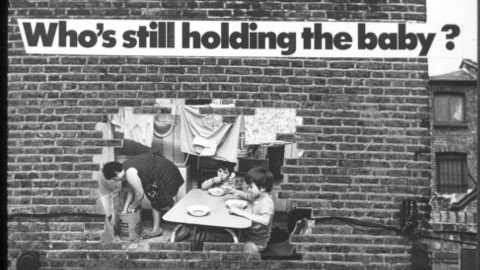
- Hackney Flashers, Who's still holding the baby?, 1978
They say it is love. We say it is unwaged work.
They call it frigidity. We call it absenteeism.
Every miscarriage is a work accident.
- a feminist pamphlet calling for Wages for Housework written by Silvia Federici in 1975.
As we approach the end of the year we bring you an updated reading list of all our feminism and gender books: a mix of foundational texts in critical and left feminist traditions with contemporary books on sex work, gender identity and fluidity, political exile, and theories of feminism in the age of neoliberalism.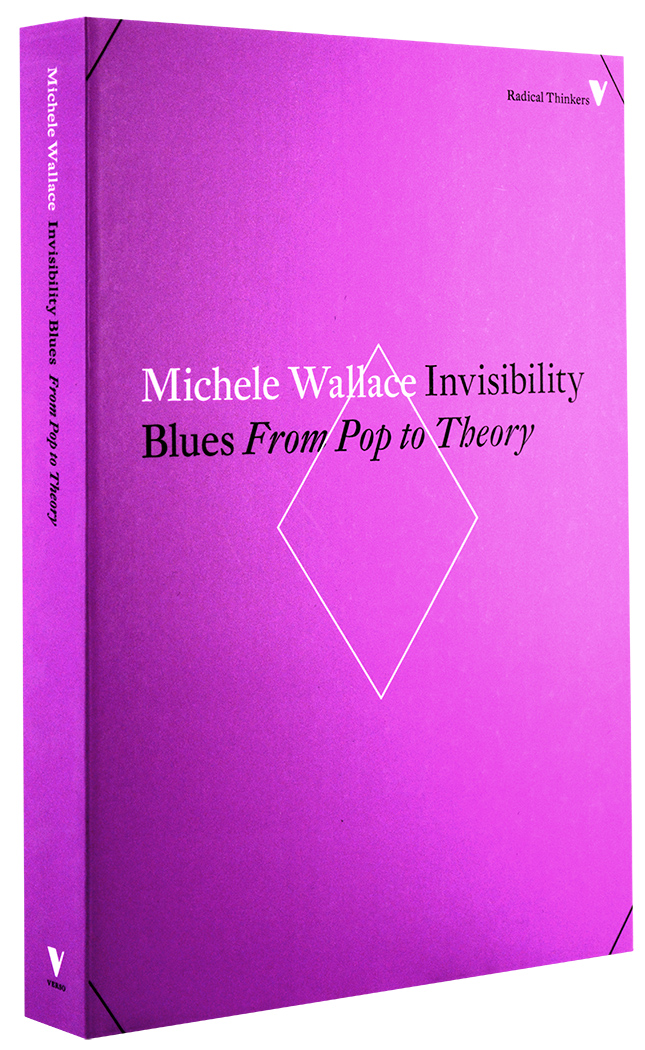
Invisibility Blues: From Pop to Theory
by Michele Wallace
First published in 1990, Michele Wallace’s Invisibility Blues is widely regarded as a landmark in the history of black feminism. Wallace’s considerations of the black experience in America include recollections of her early life in Harlem; a look at the continued underrepresentation of black voices in politics, media, and culture; and the legacy of such figures as Zora Neale Hurston, Toni Cade Bambara, Toni Morrison, and Alice Walker.

Trans: A Memoir by Juliet Jacques
Afterword by Sheila Heti
“An honest, articulate account of one life so far.” – Guardian
In July 2012, aged thirty, Juliet Jacques underwent sex reassignment surgery—a process she chronicled with unflinching honesty in a serialised national newspaper column. Trans tells of her life to the present moment: a story of growing up, of defining yourself, and of the rapidly changing world of gender politics.

Playing the Whore: The Work of Sex Work by Melissa Gira Grant
Based on ten years of writing and reporting on the sex trade, and grounded in her experience as an organizer, advocate, and former sex worker, Playing the Whore dismantles pervasive myths about sex work, criticizes both conditions within the sex industry and its criminalization, and argues that separating sex work from the "legitimate" economy only harms those who perform sexual labor.

Feminism and Nationalism in the Third World by Kumari Jayawardena
Foreword by Rafia Zakaria
For twenty-five years, Feminism and Nationalism in the Third World has been an essential primer on the late nineteenth- and early twentieth-century history of women’s movements in Asia and the Middle East. In this engaging and well-researched survey, Kumari Jayawardena presents feminism as it originated in the Third World, erupting from the specific struggles of women fighting against colonial power, for education or the vote, for safety, and against poverty and inequality.
Close to Home: A Materialist Analysis of Women's Oppression by Christine Delphy
Translated by Diana Leonard. Foreword by Rachel Hills
Close to Home is the classic study of family, patriarchal ideologies, and the politics and strategy of women’s liberation. On the table in this forceful and provocative debate are questions of whether men can be feminists, whether “bourgeois” and heterosexual women are retrogressive members of the women’s movement, and how best to struggle against the multiple oppressions women endure.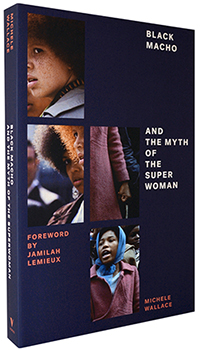
Originally published in 1978, Black Macho and the Myth of the Superwoman caused a storm of controversy. Michele Wallace blasted the masculine biases of the black politics that emerged from the sixties. She described how women remained marginalized by the patriarchal culture of Black Power, demonstrating the ways in which a genuine female subjectivity was blocked by the traditional myths of black womanhood. With a foreword that examines the debate the book has sparked between intellectuals and political leaders, as well as what has—and, crucially, has not—changed over the last four decades, Black Macho and the Myth of the Superwoman continues to be deeply relevant to current feminist debates and black theory today.
Beyond the Pale: White Women, Racism, and History by Vron Ware
How have ideas about white women figured in the history of racism? Vron Ware argues that they have been central, and that feminism has, in many ways, developed as a political movement within racist societies. Dissecting the different meanings of femininity and womanhood, Beyond the Pale examines the political connections between black and white women, both within contemporary racism and feminism, as well as in historical examples like the anti-slavery movement and the British campaign against lynching in the United States.
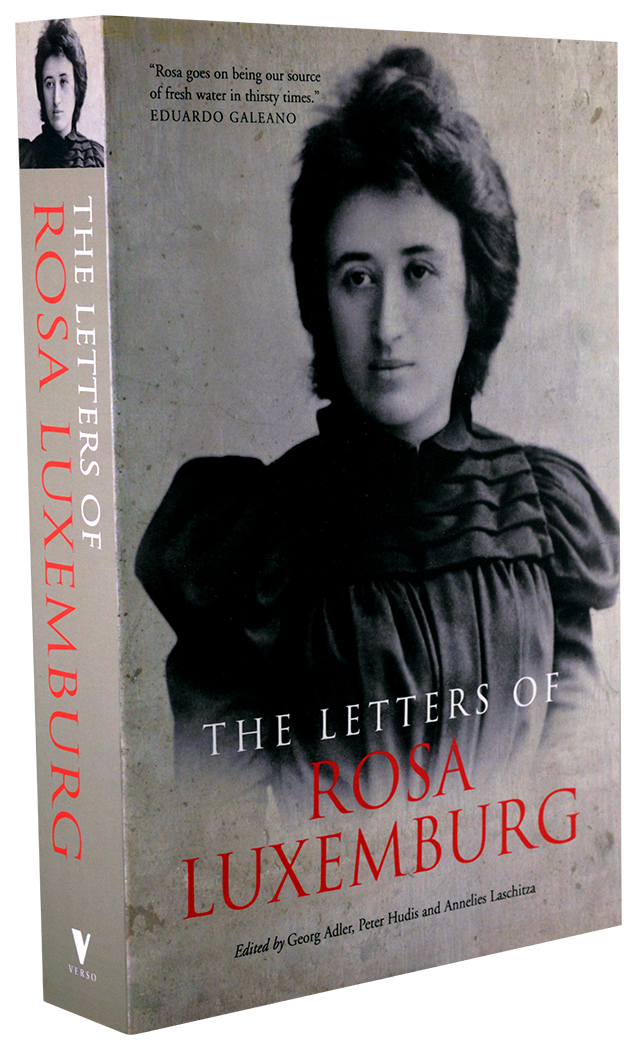
The Letters of Rosa Luxemburg by Rosa Luxemburg
Edited by Georg Adler, Peter Hudis, and Annelies Laschitza; Translated by George Shriver
The most comprehensive collection of letters by Rosa Luxemburg ever published in English, this book includes 190 letters written to leading figures in the European and international labor and socialist movements—Leo Jogiches, Karl Kautsky, Clara Zetkin and Karl Liebknecht—who were among her closest friends, lovers and colleagues. Her political concerns are revealed alongside her personal struggles within a socialist movement that was often hostile to independently minded women.
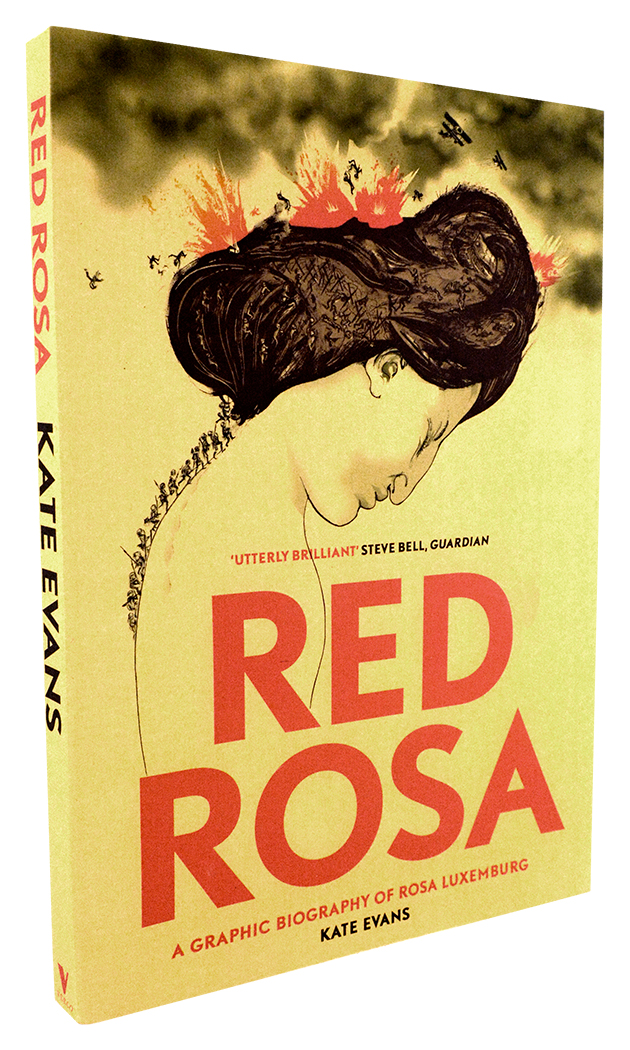
Red Rosa: A Graphic Biography of Rosa Luxemburg by Kate Evans
Edited by Paul Buhle
“Utterly brilliant” – Steve Bell, Guardian
A graphic novel of the dramatic life and death of German revolutionary Rosa Luxemburg.

I, Rigoberta Menchú: An Indian Woman in Guatemala by Rigoberta Menchú
Edited by Elisabeth Burgos-Debray. Translated by Ann Wright
Now a global bestseller, the remarkable life of Rigoberta Menchú, a Guatemalan peasant woman, reflects on the experiences common to many Indian communities in Latin America. Menchú suffered gross injustice and hardship in her early life: her brother, father and mother were murdered by the Guatemalan military. She learned Spanish and turned to catechistic work as an expression of political revolt as well as religious commitment. Menchú vividly conveys the traditional beliefs of her community and her personal response to feminist and socialist ideas. Above all, these pages are illuminated by the enduring courage and passionate sense of justice of an extraordinary woman.
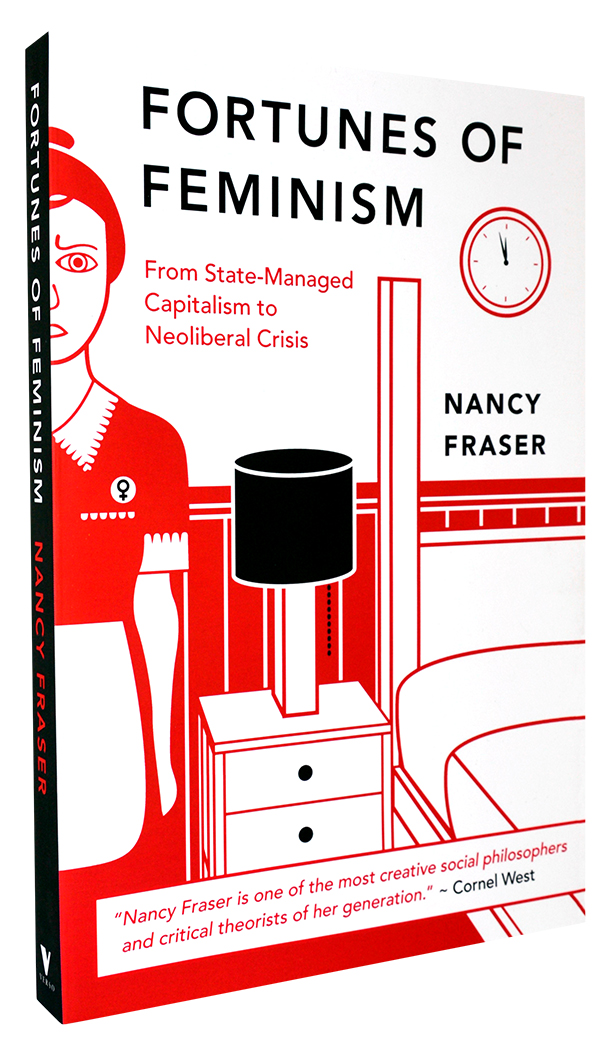
Fortunes of Feminism: From State-Managed Capitalism to Neoliberal Crisis by Nancy Fraser
Nancy Fraser’s book traces the feminist movement’s evolution since the 1970s and anticipates a new—radical and egalitarian—phase of feminist thought and action.
Precarious Life: The Powers of Mourning and Violence by Judith Butler responds to the US's perpetual war and explores how mourning could inspire solidarity.

SCUM Manifesto by Valerie Solanas
Introduction by Avital Ronell
SCUM Manifesto was considered one of the most outrageous, violent and certifiably crazy tracts when it first appeared in 1968. Valerie Solanas, the woman who shot Andy Warhol, self-published this work just before her rampage against the king of Pop Art made her a household name and resulted in her confinement to a mental institution. But for all its vitriol, it is impossible to dismiss as unhinged. In fact, the work has indisputable prescience, not only as a radical feminist analysis light-years ahead of its timepredicting artificial insemination, ATMs, a feminist uprising against under-representation in the artsbut also as a stunning testament to the rage of an abused and destitute woman.
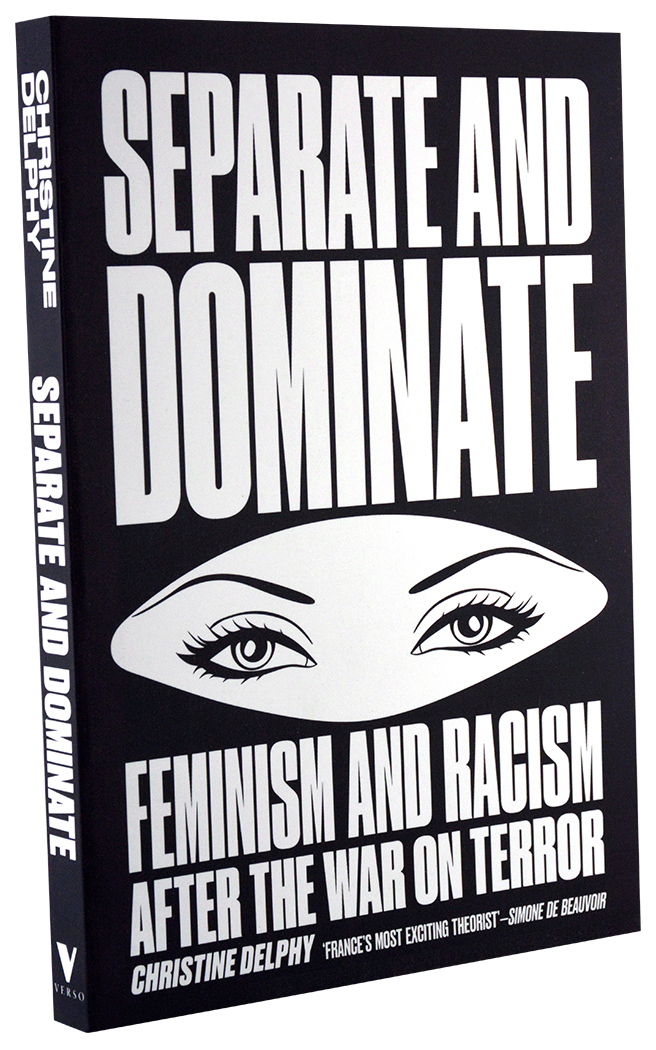
Separate and Dominate: Feminism and Racism after the War on Terror by Christine Delphy
“France’s most exciting feminist writer.” – Simone de Beauvoir
Feminist Christine Delphy co-founded the journal Nouvelles questions féministes with Simone de Beauvoir in the 1970s and became one of the most influential figures in French feminism. Separate and Dominate is Delphy’s manifesto, lambasting liberal hypocrisy and calling for a fluid understanding of political identity that does not place different political struggles in a false opposition.

Dialectic of Sex: The Case for Feminist Revolution by Shulamith Firestone
*not available in the US or Canada
An international bestseller, originally published in 1970, when Shulamith Firestone was just twenty-five years old, The Dialectic of Sex was the first book of the women’s liberation movement to put forth a feminist theory of politics. Ultimately she presents feminism as the key radical ideology, the missing link between Marx and Freud, uniting their visions of the political and the personal. The Dialectic of Sex remains remarkably relevant today—a testament to Firestone’s startlingly prescient vision.
A Vindication of the Rights of Woman by Mary Wollstonecraft — one of history's most important and elegant broadsides against sexual oppression.

VERSO FEMINIST CLASSICS:
Straight Sex: Rethinking the Politics of Pleasure by Lynne Segal
“Once again, Lynne Segal cuts through feminist ambivalence about sex with great intelligence, verve, and courage ... a stunning manifesto of sexual liberation.” — Barbara Ehrenreich
Is heterosexual sex inherently damaging to women? This is the central question of Straight Sex, Lynne Segal’s account of twenty five years of feminist thinking on sexuality.
Woman’s Consciousness, Man’s World by Sheila Rowbotham
A groundbreaking examination of the birth, development and impact of Feminist consciousness.
The Anti-Social Family by Michèle Barrett and Mary McIntosh
A sensitive but uncompromising socialist-feminist critique of the nuclear family.
Woman's Estate by Juliet Mitchell combines the energy of the early seventies feminist movement with the perceptive analyses of the trained theorist, making it one of the most influential socialist feminist statements of its time. 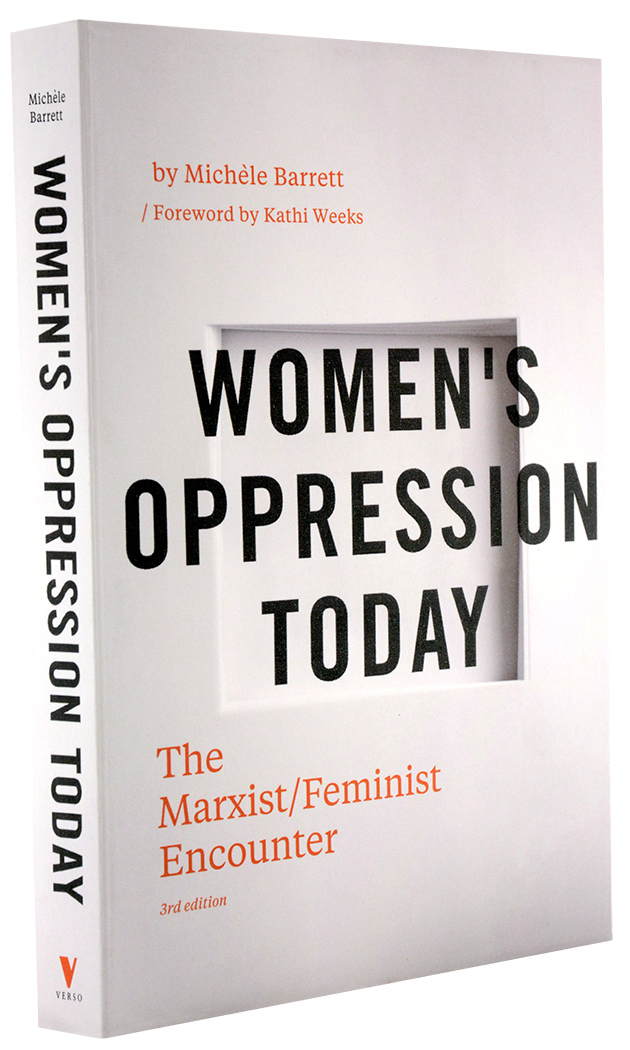
Women’s Oppression Today: The Marxist/Feminist Encounter by Michèle Barrett
A classic text in the debate about Marxism and feminism, exploring how gender, sexuality and the “family-household system” operate in relation to contemporary capitalism.
Women's Work, Men's Property: The Origins of Gender and Class edited by Stephanie Coontz and Peta Henderson is an important book from Verso's history that explores the sociohistorical roots of gender inequality.
Reversed Realities: Gender Hierarchies in Development Thought by Naila Kabeer asks why development organizations are failing women in poverty.
Lust For Life: On the Writings of Kathy Acker edited by Carla Harryman, Avital Ronell, and Amy Scholder in which scholars and artists reflect on the transgressive twentieth-century literary icon.
The Power to Choose: Bangladeshi Women and Labour Market Decisions in London and Dhaka by Naila Kabeer is a powerful analysis of how globalization is affecting the lives of women at work.